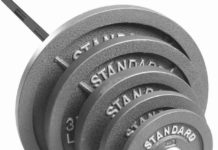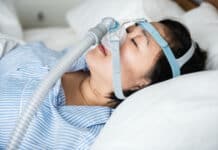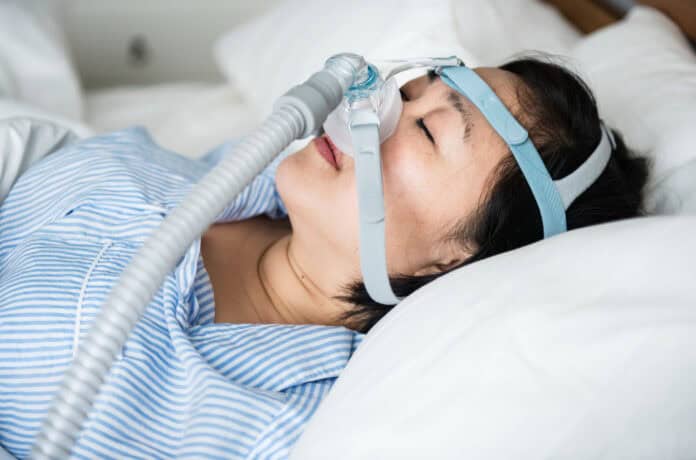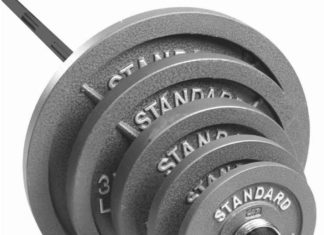Table of Contents
Can weight loss cure sleep apnea? Our exploration begins with a deep understanding of the impact weight can have on sleep apnea, shedding light on the complex relationship between the two. We'll take a closer look at the potential of weight loss as a treatment for sleep apnea, considering alternative options such as Continuous Positive Airway Pressure (CPAP), oral appliances, mouth and facial muscle therapy, and surgical procedures.
But the journey doesn't end there. We'll also examine the risks and considerations associated with weight loss for sleep apnea, highlighting the importance of seeking expert advice on diet, avoiding crash or overly restrictive diets, and choosing a nutritious diet tailored to the needs of individuals with sleep apnea.
For those seeking clarity, we address frequently asked questions surrounding weight loss and sleep apnea, such as whether maintaining a moderate weight can indeed cure sleep apnea, the challenges faced by individuals with sleep apnea in their weight loss journey, optimal weight loss goals for managing sleep apnea, and the potential option of weight loss surgery.
We offer a comprehensive overview of the impact of weight loss on sleep apnea, empowering readers with valuable insights to make informed decisions about their health. Stay tuned for the latest news and related coverage on this intriguing topic.
Key Takeaways:
- Weight loss can have a significant impact on sleep apnea by reducing airway obstruction and improving breathing during sleep.
- Alternative treatment options, such as CPAP and oral appliances, can be effective in managing sleep apnea, but weight loss should also be considered as a potential treatment.
- Seeking expert advice on diet and avoiding crash diets is important for individuals with sleep apnea who are looking to lose weight.
Can Weight Loss Cure Sleep Apnea?
Sleep apnea is a potentially serious sleep disorder characterized by breathing repeatedly stopping and starting. The impact of weight on sleep apnea is a topic of considerable interest and ongoing research in the field of sleep medicine.
Research suggests that excess weight, particularly in the upper body, can contribute to the development and worsening of sleep apnea. The excess tissue can obstruct the airway during sleep, leading to breathing pauses. As a result, individuals with obesity are at a higher risk of experiencing sleep apnea.
Studies have shown that weight loss can significantly improve or even cure sleep apnea in some cases.
Understanding the Impact of Weight on Sleep Apnea
The relationship between weight and sleep apnea, particularly in the context of obstructive sleep apnea, has been a focus of extensive research and studies in the United States and beyond.
Exploring the Relationship Between Weight Loss and Sleep Apnea
Exploring the potential correlation between weight loss and the treatment of sleep apnea involves considering lifestyle changes, clinical studies, and the impact of weight reduction on respiratory health.
Alternative Treatment Options for Sleep Apnea
Plus weight loss, alternative treatment options for sleep apnea include the use of Continuous Positive Airway Pressure (CPAP) machines, oral appliances, specific surgical procedures, and the expertise of healthcare professionals in managing the condition.
Continuous Positive Airway Pressure (CPAP)
Continuous Positive Airway Pressure (CPAP) therapy is a commonly utilized treatment for sleep apnea, involving the use of a machine to maintain open airways and facilitate normal breathing during sleep.
The CPAP machine delivers a controlled stream of air through a mask worn over the nose, or sometimes over the nose and mouth, creating enough pressure to keep the throat muscles from collapsing during sleep. This helps in preventing pauses in breathing and the associated disruptions to restful sleep. By maintaining a consistent flow of air, CPAP therapy ensures that the airway stays open, thereby reducing snoring and preventing the risk of oxygen deprivation.
Oral Appliances
Oral appliances designed to reposition the tongue and modify the upper airway structure represent an alternative approach to managing sleep apnea, particularly in cases where excess weight contributes to airway obstruction.
These oral appliances work by gently shifting the position of the jaw and tongue, which helps in preventing their collapse and effectively maintaining an open airway during sleep. By doing so, they reduce the risk of pauses in breathing and improve the quality of sleep for individuals with sleep apnea.
Research has indicated that the use of oral appliances may lead to a reduction in tongue fat, which is thought to be a contributing factor to airway obstruction in individuals with sleep apnea.
Mouth and Facial Muscle Therapy
Therapeutic interventions targeting mouth and facial muscle tone have shown promise in the field of sleep medicine as adjunctive treatments for sleep apnea, especially in cases influenced by factors such as excess weight and airway constriction.
Mouth and facial muscle therapy plays a crucial role in influencing the upper airway dynamics during sleep, addressing underlying muscular imbalances that contribute to obstructive sleep apnea.
By targeting the muscles involved in maintaining the integrity of the upper airway, such interventions aim to improve the tone and function of the soft tissues, consequently reducing the severity of apnea events.
These therapies may also complement continuous positive airway pressure (CPAP) therapy, offering a holistic approach to managing sleep apnea and enhancing overall treatment outcomes.
Surgical Procedures
Surgical interventions targeting the respiratory tract and addressing fatty deposits have been considered in cases of severe sleep apnea, especially when obstructive features are influenced by excess weight and related anatomical factors.
Surgical procedures, such as uvulopalatopharyngoplasty (UPPP), maxillomandibular advancement, and tracheostomy, can help alleviate the obstruction in the upper airway and improve breathing during sleep. UPPP involves the removal of excess tissue in the throat, while maxillomandibular advancement repositions the upper and lower jaws.
In addition, bariatric surgeries may be recommended to address the underlying obesity contributing to fatty deposits and airway constriction. These interventions aim to reduce the severity of sleep apnea by modifying the anatomical structures and facilitating unobstructed airflow.
Risks and Considerations in Weight Loss for Sleep Apnea
While weight loss can offer potential benefits for sleep apnea management, it is essential to consider associated risks, dietary programs, and the challenges posed by the ongoing obesity epidemic.
Seeking Expert Advice on Diet for Sleep Apnea
Seeking guidance from healthcare professionals and specialized experts can significantly aid in formulating an effective diet plan tailored to address sleep apnea, considering its status as a prominent risk factor for various health conditions.
Professionally tailored diet plans can play a crucial role in managing sleep apnea and its associated health risks. Healthcare professionals, such as registered dietitians and nutritionists, can provide valuable insights into the dietary considerations that can positively impact sleep patterns and overall health. These experts utilize their knowledge of nutritional science to develop personalized meal plans that take into account the specific needs and challenges of individuals with sleep apnea.
Avoiding Crash or Overly Restrictive Diets
Adopting sustainable lifestyle changes and avoiding crash or overly restrictive diets is crucial in promoting overall health and well-being, particularly in the context of managing sleep apnea through weight loss.
Crash diets and overly restrictive dietary approaches may provide temporary weight loss, but they often lead to nutritional deficiencies, fatigue, and a slowed metabolism. Instead, individuals with sleep apnea should focus on long-term, sustainable changes such as balanced nutrition, regular physical activity, and adequate sleep. These modifications not only support weight management, but also contribute to improved overall health and reduced symptoms of sleep apnea.
Choosing a Nutritious Diet for Sleep Apnea
Selecting a nutritious diet tailored to address sleep apnea can have significant implications for managing associated health conditions such as obesity and diabetes, emphasizing the interplay between dietary choices and overall well-being.
Individuals with sleep apnea often experience disrupted sleep patterns and may suffer from fatigue and daytime drowsiness, which can lead to a sedentary lifestyle and weight gain. A diet rich in whole grains, lean proteins, fruits, and vegetables can contribute to weight management and reduce the risk of obesity, a known contributor to sleep apnea.
Furthermore, diabetes is closely linked to sleep apnea, and a balanced diet can play a vital role in preventing or managing this condition. For instance, limiting added sugars and processed foods is essential to keep blood glucose levels stable and reduce the risk of diabetes complications.
By emphasizing the consumption of nutrient-dense foods and the importance of maintaining a healthy weight, individuals can positively impact their sleep apnea symptoms and overall health.
Frequently Asked Questions (FAQs) About Weight Loss and Sleep Apnea
Common inquiries about the potential of weight loss to cure sleep apnea often revolve around symptoms, individual experiences, and the realistic expectations associated with managing the condition through weight reduction.
Can Maintaining a Moderate Weight Cure Sleep Apnea?
Maintaining a moderate weight can contribute to the management of sleep apnea, potentially offering improvements in symptoms and overall well-being, as supported by lifestyle modifications and health-focused changes.
When an individual carries excess weight, it can lead to the compression of the airway during sleep, exacerbating the symptoms of sleep apnea. By making healthy dietary choices and engaging in regular physical activity, it is possible to achieve and maintain a moderate weight, which can positively impact the severity of the condition.
Weight loss can lead to a decrease in fat deposition around the neck and throat, reducing the risk of airway obstruction during sleep.
Challenges of Weight Loss for Individuals with Sleep Apnea
Addressing the challenges of weight loss for individuals dealing with sleep apnea involves considerations of physical activity, heart disease risks, and the complexities of managing multiple health conditions simultaneously.
Physical activity is crucial for weight management in individuals with sleep apnea, as it can help improve sleep quality, increase metabolism, and reduce the risk of comorbidities. The potential limitations and safety concerns related to vigorous exercise should be carefully assessed.
Individuals with sleep apnea often face an increased risk of heart disease, making it vital to tailor weight loss strategies with cardiovascular health in mind. Introducing a balanced diet and monitoring cholesterol levels can be particularly beneficial.
Integrating weight loss efforts with the complexities of managing multiple health conditions such as sleep apnea, requires personalized approaches addressing specific challenges, involving multidisciplinary collaboration between healthcare providers.
Optimal Weight Loss Goals for Managing Sleep Apnea
Establishing optimal weight loss goals for managing sleep apnea requires considerations of obesity, diabetes, and the potential impact of weight reduction on improving overall health outcomes and sleep-related symptoms.
Obesity is a significant risk factor for sleep apnea, and weight loss can play a crucial role in alleviating its symptoms. Setting realistic weight loss goals is essential in this context as it helps individuals to focus on achievable targets, leading to sustainable improvements in their health. Individuals with sleep apnea often have comorbid conditions such as diabetes, and addressing weight management goals can positively impact their diabetes management. When setting these goals, it is important to consider the interplay between sleep apnea, obesity, and diabetes to ensure a holistic approach to health and well-being.
Evaluating the Option of Weight Loss Surgery
Evaluating the potential benefits and considerations of weight loss surgery in the context of sleep apnea therapy involves addressing the complexities of obesity epidemics, potential cures, and long-term outcomes for individuals facing the condition.
Obesity, as a multifaceted health concern, often contributes to the development and exacerbation of obstructive sleep apnea. Surgical interventions, such as gastric bypass or sleeve gastrectomy, can lead to significant weight reduction, potentially alleviating the severity of sleep apnea and improving overall respiratory function.
The impact of weight loss surgery on long-term outcomes for sleep apnea encompasses not only the potential for symptom alleviation, but also reductions in cardiovascular risk factors, better metabolic control, and enhanced quality of life. It's essential to carefully weigh the risks and benefits of surgical procedures, considering individual health profiles and anticipated postoperative management.
Summary: Weight Loss and its Impact on Sleep Apnea
The impact of weight loss on sleep apnea encompasses considerations of symptom management, the findings of relevant sleep studies, and the potential for improvements in overall respiratory health and sleep-related symptoms.
Weight loss plays a crucial role in addressing the underlying factors contributing to sleep apnea. Research indicates that even modest weight reduction, particularly targeting excess fat around the neck and throat, can significantly alleviate symptoms associated with obstructive sleep apnea.
Weight loss has been linked to improvements in respiratory function, reducing the severity of breathing interruptions during sleep. These benefits extend beyond symptom management, addressing the overall quality and efficiency of sleep in individuals with sleep apnea.
Latest News and Related Coverage
Stay informed about the latest updates and developments in sleep apnea research, potential cures, and the latest insights from reputable sources (Harvard Health Publishing).
Understanding the latest advances in sleep apnea research is crucial for individuals affected by this condition and healthcare professionals alike. With ongoing studies shedding light on new treatment options and diagnostic tools, it's essential to stay informed to make informed decisions about managing sleep apnea.
From breakthroughs in oral appliance therapy to the exploration of genetic influences on the condition, the field of sleep studies is continuously evolving. Keeping up to date with the findings and analyses published in academic publications enables you to be an informed advocate for improved sleep health.
Frequently Asked Questions
Can weight loss cure sleep apnea?
Yes, weight loss can significantly improve or even cure sleep apnea in some cases. As excess weight can put pressure on the airways and cause them to collapse during sleep, losing weight can reduce this pressure and allow for proper breathing.
How much weight do I need to lose to cure sleep apnea?
The amount of weight you need to lose to see improvements in your sleep apnea depends on your individual case. However, studies have shown that even a 10% weight loss can have a significant impact on reducing sleep apnea symptoms.
Is weight loss the only treatment for sleep apnea?
No, weight loss is not the only treatment for sleep apnea. While it can be an effective method, it may not work for everyone. Other treatments for sleep apnea include continuous positive airway pressure (CPAP) therapy, oral devices, and surgery.
Can losing weight completely cure sleep apnea?
Weight loss can significantly improve or even cure sleep apnea in some cases, but it may not work for everyone. Some people may still require other treatments to manage their sleep apnea, even after losing weight.
What are the other benefits of losing weight for sleep apnea?
Aside from potentially improving sleep apnea, losing weight can have other positive effects on your health. It can lower your risk for other chronic conditions such as heart disease, high blood pressure, and type 2 diabetes.
How can I lose weight to help with sleep apnea?
To lose weight and potentially improve sleep apnea, it is important to follow a healthy and balanced diet and engage in regular physical activity. Consult with a healthcare professional or registered dietitian for personalized recommendations and support.
















